Full Width
-
Academics
- Degrees and Certificates
- Accounting
- Agricultural Business
- Agricultural Technology
- Athletic Training/Sports Medicine
- Automotive Technology
- Biology/Medical Pre-Professional
- Business
- Business Online
- Cardiovascular Technology
- Certified Nursing Assistant
- Construction Trades Green Technology
- Communications
- Criminal Justice
- Early Childhood Education
- Elementary Education
- Emergency Medical Technician
- Engineering Technology
- English
- Environmental Sciences
- General Studies
- Graphic Design Technology
- Health Services
- Information Technology-Help Desk
- Information Technology-Networking
- IT Cybersecurity & System Administrator
- Medical Assisting
- Medication Aide
- MRI Technology
- Music
- Neurodiagnostic (EEG) Technology
- Nursing
- Phlebotomy
- Psychology
- Psychology Online
- Radiography Technology
- Robotics
- Science, Engineering, and Math
- Social Science
- Social Work
- Social Work Online
- Sports Management
- Tribal Leadership
- Visual Arts
- Welding
- Online Degrees and Classes
- University Partnerships and Transfer Opportunities
- Classes and Catalog
- Course Search
- WELD 235
- THEA 180
- THEA 110
- SPAN 201
- SPAN 101
- PSYC 215
- PSYC 102
- PHYS 201
- PHYS 101
- MUSI 205
- MUSI 201
- MUSI 110
- MUSI 105
- MUSI 101
- MEDA 212
- MEDA 211
- MEDA 210
- MATH 205
- MATH 153
- LEGA 220
- LEGA 203
- LEGA 102
- ISYS 294
- ISYS 285
- ISYS 284
- ISYS 276
- ISYS 272
- INTE 229
- INTE 126
- HUMA 199
- HIMS 205
- HIMS 202
- HIMS 201
- HEED 190
- HEED 131
- FISC 211
- FISC 210
- FISC 111
- ESL 152
- ESL 151
- ENGL 235
- ENGL 115
- ELEC 234
- EDUC 260
- EDUC 208
- CRIM 235
- CRIM 110
- CPHE 1110
- CONS 165
- CONS 117
- CONS 114
- CNUR 200
- CMUS 1250
- CHUM 2050
- CHEM 201
- CCON 155
- CART 182
- CART 1100
- CART 1030
- CADD 101
- BUSI 212
- AUTO 232
- AUTO 228
- AUTO 148
- AUTO 122
- AUTO 119
- AUTO 116
- ART 261
- ART 235
- ART 219
- ART 212
- ART 211
- ART 203
- ACCO 214
- ACCO 211
- WELD 170
- PSYC 299
- PSYC 260
- ISYS 288
- ISYS 283
- HEED 170
- ENGL 281
- ENGL 231
- CRIM 275
- CRIM 220
- CRIM 112
- CRIM 102
- CPHE 1140
- CPHE 104
- CCIS 288
- CCIS 281
- CCIS 215
- CART 160
- WELD 279
- WELD 277
- WELD 265
- WELD 180
- WELD 175
- WELD 169
- WELD 168
- WELD 159
- THEA 220
- THEA 210
- THEA 185
- THEA 184
- THEA 181
- SPEE 104
- SPEE 102
- SPAN 202
- SPAN 102
- SOWK 240
- SOWK 205
- SOWK 200
- SOWK 120
- SOWK 100
- SOCI 248
- SOCI 240
- SOCI 203
- SOCI 201
- SLP 110
- SCIE 190
- PSYC 296
- PSYC 205
- PSYC 180
- PSYC 101
- POSC 201
- PHYS 202
- PHYS 102
- PHIL 280
- PHIL 210
- PHIL 201
- PHIL 101
- PHED 280
- PHED 215
- PHED 210
- PHED 111
- PHED 103
- PHED 101
- OADM 142
- OADM 138
- OADM 137
- OADM 111
- NURS 241
- NURS 240
- NURS 228
- NURS 212
- NURS 202
- NURS 201
- NURS 180
- NURS 178
- NURS 177
- NURS 167
- NURS 166
- MUSI 253
- MUSI 252
- MUSI 251
- MUSI 240
- MUSI 226
- MUSI 225
- MUSI 224
- MUSI 223
- MUSI 219
- MUSI 218
- MUSI 217
- MUSI 216
- MUSI 214
- MUSI 213
- MUSI 206
- MUSI 204
- MUSI 203
- MUSI 202
- MUSI 143
- MUSI 142
- MUSI 141
- MUSI 131
- MUSI 125
- MUSI 123
- MUSI 122
- WELD 287
- MUSI 118
- PHED 112
- MUSI 116
- NDXT 220
- MUSI 113
- NDXT 202
- MUSI 111
- NDXT 201
- MUSI 106
- NDXT 200
- MUSI 102
- NDXT 132
- MEDA 251
- NDXT 131
- MEDA 250
- NDXT 130
- MEDA 240
- INTE 237
- MEDA 221
- HUMA 243
- MEDA 220
- AUTO 113
- MATH 265
- ATHL 101
- MATH 203
- MATH 201
- MATH 154
- MATH 150
- MATH 142
- MATH 141
- MATH 136
- MATH 131
- MATH 130
- MATH 129
- MATH 128
- MATH 127
- MATH 102
- MATH 101
- MATH 098
- MACH 255
- NDXT 120
- LEGA 204
- NDXT 102
- ISYS 290
- NDXT 101
- ISYS 289
- NDXT 100
- ISYS 282
- ISYS 281
- ISYS 275
- ISYS 271
- ISYS 260
- ISYS 255
- ISYS 251
- ISYS 241
- ISYS 234
- ISYS 229
- ISYS 228
- ISYS 227
- WELD 200
- ISYS 225
- WELD 113
- ISYS 215
- CONS 132
- ISYS 207
- CONS 113
- ISYS 201
- CADD 103
- ISYS 200
- ART 258
- ISYS 182
- ISYS 181
- ISYS 140
- ISYS 115
- ISYS 110
- INTE 255
- INTE 245
- INTE 240
- INTE 227
- INTE 159
- INTE 140
- HUMA 299
- HUMA 210
- HUMA 205
- HUMA 204
- HUMA 202
- HIST 290
- HIST 230
- HIST 202
- HIST 201
- HIST 102
- HIST 101
- HIMS 290
- HIMS 255
- HIMS 210
- ISYS 295
- HIMS 203
- HIST 247
- HIMS 180
- FISC 201
- HIMS 101
- CONS 131
- HEED 251
- HEED 163
- HEED 137
- HEED 132
- HEED 120
- HEED 118
- HEED 117
- HEED 116
- HEED 101
- GEOG 110
- GEOG 105
- FISC 213
- FISC 112
- FISC 110
- MRI 262
- ENST 112
- MRI 240
- ENGL 282
- MRI 232
- ENGL 265
- MRI 222
- ENGL 263
- WELD 280
- ENGL 261
- SOCI 202
- ENGL 251
- FISC 105
- ENGL 232
- MRI 295
- ENGL 104
- MRI 263
- ENGL 103W
- MRI 260
- ENGL 103
- MRI 241
- ENGL 101
- MRI 200
- ELEC 255
- CEDU 220
- ELEC 233
- ELEC 218
- ELEC 212
- ELEC 208
- ELEC 140
- ELEC 131
- ELEC 119
- ELEC 118
- EDUC 255
- EDUC 240
- EDUC 230
- EDUC 223
- EDUC 222
- EDUC 221
- EDUC 220
- EDUC 217
- EDUC 215
- EDUC 210
- EDUC 120
- EDUC 115
- EDUC 101
- ECON 202
- ECON 201
- CRIT 103W
- CRIT 103
- CRIM 270
- CRIM 260
- CRIM 219
- MRI 261
- CRIM 113
- MRI 230
- CRIM 111
- MRI 220
- CONS 255
- MRI 201
- CONS 180
- CONS 175
- CONS 169
- CONS 161
- CONS 150
- CONS 145
- CONS 140
- CONS 135
- CONS 130
- CONS 115
- COMM 115
- COMM 110
- CNUR 100
- CMUS 2520
- CMUS 2510
- CMUS 1230
- CMUS 1220
- CMUS 1180
- CMUS 1160
- CMUS 1130
- CHEM 202
- HEED 175
- CHEM 102
- CHEM 101
- NURS 249
- CHEM 100
- NURS 248
- CHEE 1200
- NURS 239
- CADD 255
- NURS 238
- CADD 104
- NURS 209
- BUSI 255
- NURS 208
- BUSI 240
- NURS 205
- BUSI 225
- NURS 204
- BUSI 221
- NURS 195
- BUSI 220
- NURS 194
- BUSI 214
- NURS 187
- BUSI 210
- NURS 186
- BUSI 208
- NURS 170
- BUSI 207
- NURS 168
- BUSI 201
- NURS 160
- BUSI 200
- HIST 248
- BUSI 101
- BISC 111
- BIOL 215
- BIOL 214
- BIOL 202
- BIOL 118
- BIOL 110
- BIOL 102
- BIOL 101
- BIOL 098
- BDWI 201
- BDWI 101
- AUTO 255
- AUTO 246
- AUTO 234
- AUTO 229
- AUTO 227
- AUTO 223
- AUTO 222
- AUTO 216
- AUTO 147
- AUTO 131
- AUTO 103
- ART 299
- ART 265
- ART 255
- ART 230
- ART 225
- ART 220
- ART 215
- ART 213
- ART 210
- ART 209
- ART 208
- ART 204
- ART 200
- ART 148
- ART 120
- ART 110
- ART 106
- ART 105
- ART 104
- ART 103
- ART 102
- ENGL 228
- ART 101
- ART 100
- AGRI 190
- ACCO 255
- ACCO 212
- ACCO 204
- ACCO 203
- ACCO 202
- ACCO 201
- LEGA 255
- LEGA 240
- LEGA 230
- LEGA 206
- LEGA 205
- Instructional Method
- PHED 110
- PHED 105
- ART 112
- RAD 213
- RAD 130
- RAD 115
- MUSI 132
- ISYS 297
- RAD 113
- RAD 110
- RAD 100
- HEED 122
- CVT 120
- CVT 115
- CVT 110
- CVT 105
- CVT 100
- ATHL 110
- ATHL 105
- MUSI 241
- MATH 150C
- MATH 128C
- MATH 127C
- MATH 114C
- MATH 114
- EDUC 270
- EDUC 265
- EDUC 224
- EDUC 212
- ATHL 115
- Online and Online-Hybrid Classes
- College Catalog
- Course Search
- Honors Program
- Degrees and Certificates
Christy Tidd
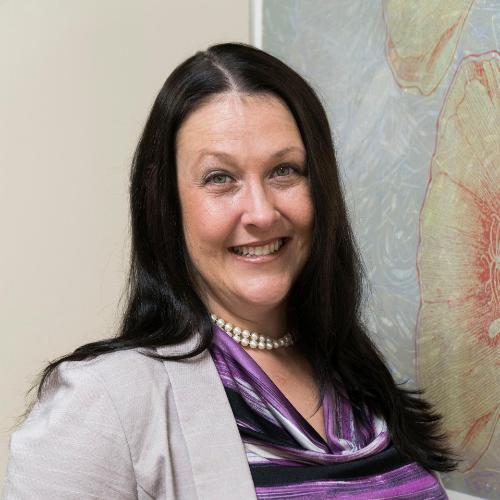
-
Education
Master of Arts in Industrial and Organizational Psychology, Chicago School of Professional Psychology
Bachelor of Arts in Psychology, Indiana University
Associate in Arts, Southwestern Michigan College
-
Courses Taught
General Psychology
Human Growth and Development
Organizational Psychology
Educational Psychology
Psychology of Adjustment
Abnormal Psychology
Positive Psychology
Educational Exploration and Planning
-
Honors Program Involvement
Professor Tidd teaches honors sections of her psychology courses. Projects in her classes may involve in-depth case studies on an organization, research assignments relating psychology to one’s personal life or raising a virtual child and creating a parenting guide for parents.
-
Full Bio
Christy Tidd’s educational career began at Purdue University where she studied both elementary education and psychology. After a short break, she earned her Associate in Arts with a focus on psychology from Southwestern Michigan College followed by a Bachelor of Arts in Psychology from Indiana University. She completed her Master of Arts in Industrial and Organizational Psychology at the Chicago School of Professional Psychology and has continued work towards her Ph.D.
After receiving her M.A., Professor Tidd worked both as an independent consultant and in corporate management consulting, working for Towers Watson (now Willis Towers Watson) and C.E.B. (Corporate Executive Board). Throughout her years in consulting, she worked with many Fortune 500 and Fortune 100 companies across multiple industries and countries, including American Airlines, Biogen and Kellogg’s. In 2012 Professor Tidd became a certified Positive Psychology Coach, studying under the esteemed Robert Biswas-Diener, otherwise known as the “Indiana Jones” of positive psychology.
Her passion for teaching drove her to work for both Indiana University and Southwestern Michigan College. While her career as faculty at SMC began in 2012, it is her own experience as a student at SMC that fuels her passion to inspire current students in the same manner in which she was. Similarly, as a former honors student herself, she empathizes with the student perspective and knows the value of the honors experience. Her personal passions include learning, individual growth and development and helping others optimize their lives, which she aims to do with each of her honors projects.
Professor Tidd’s areas of expertise include general psychology, human growth and development, industrial/organizational psychology, educational psychology, positive psychology and psychology of adjustment. She welcomes honors students in any class she leads. Honors projects often include completing in-depth case studies on a business of choice, additional research assignments relating psychology to one’s personal life and raising a virtual child and creating a parenting guide for other parents.
Dr. Douglas Schauer
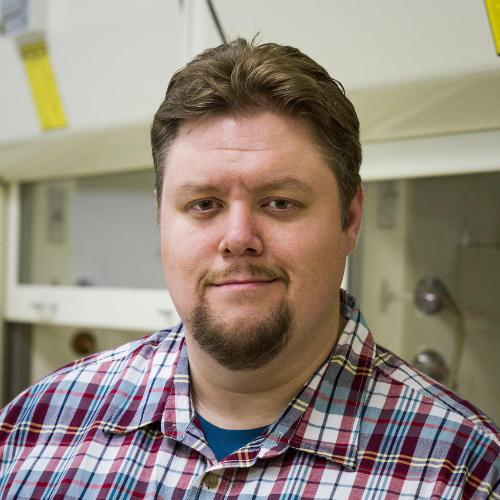
-
Education
Doctorate of Philosophy in Organic Chemistry, University of Notre Dame
Bachelor of Science in Chemistry, Drexel University
-
Courses Taught
Fundamentals of Chemistry
General Chemistry I and II
Organic Chemistry I and II
-
Honors Program Involvement
Dr. Schauer teaches Honors sections of chemistry. His Honors students are expected to participate in a rigorous research project culminating in the development of a poster, a paper and a presentation.
-
Full Bio
Douglas Schauer earned a bachelor of science in chemistry from Drexel University in Philadelphia, PA. During his time there, he began to specialize in synthetic organic chemistry by undertaking research projects in the university's chemistry department, completing three six-month internships in the pharmaceutical industry and being employed as a synthetic chemist at the University of Pennsylvania.
Upon graduation, Dr. Schauer attended graduate school at the University of Notre Dame where his research focused on the development of new chemical reactions and the synthesis of potential anti-cancer drugs. His work culminated in the development of a new method to form carbon-carbon double bonds, The Schauer Modification of the Horner-Wadsworth-Emmons Reaction. This method has been cited as a key reaction in several publications. He also completed a streamlined synthesis of the potent HDAC inhibitor, trichostatin A.
After completing his Ph.D. in organic chemistry under the direction of Professor Paul Helquist, Dr. Schauer began his teaching career at Ivy Tech Community College in Lafayette, IN as the program chair for Chemical Technology. In this role, he became the first faculty member on the Lafayette Campus to institute an undergraduate research program. This program focused on the creation of biofuels and the purification of water contaminated with heavy metals. His work has been published in the “Journal of Chemical Education” and has been featured in Time, CNN, Prevention Magazine and Men's Fitness Magazine. During his time at Ivy Tech, Dr. Schauer progressed through the ranks of instructor, assistant professor and associate professor. He earned the President's Award for Excellence in Instruction in 2012 and the Chancellor's Supererogatory Award in 2013.
In the Summer of 2015, Dr. Schauer brought his research program to Southwestern Michigan College where he became an instructor of chemistry. In his time here, he has developed a strong undergraduate research program that allows SMC students to participate in original research projects. The results of these projects have been reported at national and regional meetings of the American Chemical Society across the country. Dr. Schauer also currently holds a guest faculty appointment at the University of Notre Dame, which allows him to bring SMC students to Notre Dame's campus to pursue research opportunities.
Gary Franchy

-
Education
Master of Arts in Mathematics, University of Detroit Mercy
Bachelor of Arts in Mathematics, Wayne State University
-
Courses Taught
Statistics
Analytic Geometry and Calculus I
Finite Math with College Algebra
Contemporary Mathematics
College Algebra
Mathematical Literacy
-
Honors Program Involvement
Mr. Franchy is co-founder, co-director and faculty advisor for the Honors Program. He also teaches Honors sections of Statistics.
-
Full Bio
Beyond his bachelor’s and master’s degrees in mathematics, Gary Franchy has completed 51 additional hours of graduate course work towards a doctorate degree in education evaluation and research from Wayne State University, with over half of those credits in applied statistics and the remainder of coursework covering symbolic logic, mathematics education, instructional design and assessment.
Professor Franchy has been teaching at the collegiate level since 1997. He spent 13 years with Davenport University earning the rank of associate professor. He also served for five years as the executive director of general education and over nine years as the chair of mathematics at Davenport. In addition to his undergraduate teaching experiences, he has also taught Quantitative Methods, Business Research and Intermediate Biostatistics as part of Davenport’s M.B.A. program. Before joining Southwestern Michigan College as a full time instructor in 2014, Mr. Franchy taught at multiple institutions, including Wayne State University where he won Excellence in Teaching awards as both a graduate teaching assistant and as adjunct faculty.
Professor Franchy’s professional interests are in both quantitative literacy and statistics education. He has presented nationally numerous times in these areas, including teaching mini-courses at the Joint Mathematics Meeting and the International Conference on Technology in Collegiate Mathematics. He has served as the chair of the Quantitative Literacy Special Interest Group of the Mathematical Association of America (SIGMAA-QL) and as a manuscript reviewer for “Numeracy: Advancing Education in Quantitative Literacy”, the electronic journal of the National Numeracy Network. He has contributed three peer-reviewed instructional modules to the Spreadsheets Across the Curriculum Project which have been published on The Science Education Resource Center’s website.
Most recently, Mr. Franchy has worked closely with fellow mathematics faculty member Mark Pelfrey to develop the Honors Program at SMC and currently teaches Honors students in Statistics. Honors students taking Statistics will use simulations to explore topics beyond the typical scope of the course, including nominal versus experimental alpha, statistical power of a hypothesis test, variation in the distribution shape of sample data taken from a normally distributed variable and using frequency analysis to detect “faked” data.
Hailey Sheets
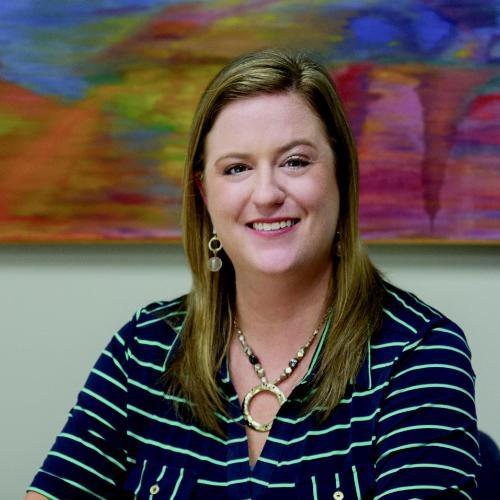
-
Education
Master of Arts in English Literature, Ball State University
Bachelor of Arts in English Literature, Saint Mary’s College
-
Courses Taught
Freshman English II and III
Creative Writing/Fiction
Survey of British Literature II
-
Honors Program Involvement
Mrs. Sheets works with Honors students in English, literature and creative writing courses, providing them with opportunities to work in-depth on writing and research projects that uniquely interest them.
-
Full Bio
Professor Hailey Sheets is a Michiana native who grew up in Granger, Indiana. After graduating from Penn High School, she attended Saint Mary’s College in Notre Dame, Indiana where she earned her B.A. in English Literature. It was at Saint Mary’s that she recognized her passion for Victorian literature. She spent part of her senior year on a directed study that allowed her to closely read and analyze Queen Victoria’s personal diaries. The research she conducted on Queen Victoria’s diaries and nineteenth-century British literature and culture, paved the way to the research she would do as a graduate student.
After graduating from Saint Mary’s College, Mrs. Sheets attended Ball State University in Muncie, Indiana where she earned her Master of Arts in English Literature and also took doctoral coursework in the same discipline. As a graduate student, she continued researching nineteenth-century literature, especially the ways in which fiction and nonfiction texts of this time period represented motherhood. Her M.A. work culminated in the completion of a thesis entitled “Weaving Work and Motherhood: The Negotiated Roles of Queen Victoria,” under the supervision of Dr. Joyce Huff. During her seven-year tenure at Ball State, she shared her research at several academic conferences, including “Constructing the Monstrous Freak: Renfield’s ‘Extraordinary’ Mind in Bram Stoker’s ‘Dracula’” at the Midwest Conference on British Studies, “Sublime Power: The Masculine Threat in Horace Walpole’s ‘The Castle Of Otranto’ and Jane Austen’s ‘Northanger Abbey’” at the Indiana College English Association Conference, and “Hair Speaks in Charles Dickens’s ‘David Copperfield’” at the Disciplining the Body Conference sponsored by the University of Florida-Tallahassee.
In addition to expanding her literary knowledge, Mrs. Sheets taught for seven years as a part-time English professor for the Writing Program in the English Department at Ball State University. She received training in writing pedagogy during that time from Dr. Kristie Fleckenstein, a leading scholar in the rhetoric/composition field. The training she received opened her eyes to the importance of visual literacy in the composition classroom. Subsequently, she began researching the benefits of teaching multimodal compositions and assigning student projects that incorporated written and visual texts, audio and video into her writing courses. Using her knowledge of multimodal theory and experiences working with students on multimodal compositions, she published a collaboratively written article with colleagues Nicole Williams and Elizabeth Murray entitled “The New Work of Assessment: Evaluating Multimodal Compositions” in “Computers and Composition Online.” This article captured the attention of Dr. Claire Lutkewitte, associate professor of writing and communication at Nova Southeastern University, who included the article as a chapter in her book “Multimodal Composition: A Critical Sourcebook” published by Bedford/St. Martin’s in 2014.
Although Mrs. Sheets enjoyed her time teaching at Ball State University, she never considered it “home.” While living in central Indiana with her husband and daughter, she had aspirations of moving back to the Michiana area so she could be in closer proximity to extended family. When a full-time English position opened up at Southwestern Michigan College in 2011, she jumped at the opportunity to return to her roots and to teach at a community college where she could focus on her passion for teaching. She was offered the position and began in Fall 2011 at Southwestern Michigan College, where she remains today. She regularly teaches all levels of Freshman English, Creative Writing/Fiction, and Survey of British Literature II. She works with Honors students in all of these courses, providing them with opportunities to work in-depth on writing/research projects that uniquely interest them. Mrs. Sheets also serves as an English Club faculty advisor, which allows her to help organize activities, events, contests and trips for SMC students who share her love of reading, writing and film. Lastly, she has been the chairperson for the Communications Department since 2014 and enjoys being able to balance teaching and administrative work for the college.
Dr. Maria DeRose
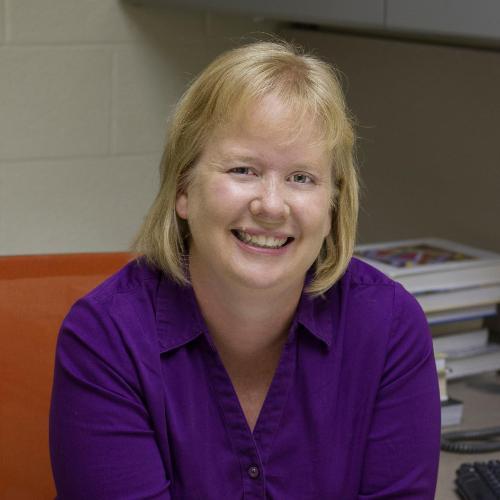
-
Education
Doctorate of Philosophy in Popular Culture/Gender and Women’s Studies, Bowling Green State University
Master of Arts in American Cultural Studies, Bowling Green State University
Master of Arts in English, Western Illinois University
Graduate Certificate in Teaching Writing, Western Illinois University
-
Courses Taught
Freshman English II and III
Introduction to American Pop Culture
Introduction to Film
Great American Films
American Literature I and II
American Ethnic Literature
-
Honors Program Involvement
Dr. DeRose wants her Honors students to experience a taste of what academic life is like at graduate school levels. To such end, she works individually with her Honors students to raise the bar on their analysis of how pop culture both reflects and shapes culture. She has them teach a mini-topic to the class (because you never learn something as well as when you have to teach it to others), and they prepare their work to be presented at the Academic Open House and at a national conference that they will apply for with her guidance.
-
Full Bio
Dr. Maria DeRose’s academic career has taken her on a tour of the Midwest, with a few detours along the way.
After having moved from Chicago to Grand Rapids to attend Calvin College, she took a semester in Hollywood to study and work in the film industry. This Midwest girl realized that the industry wasn’t the place for her after the executive producer at Bette Midler’s production company (where she was interning) yelled “what do you want from me?” when she told them to have a nice weekend. So, back to the Midwest she went to attend Bowling Green State University in Ohio, the top school in the country for popular culture studies and home of the founder of the academic study of popular culture in the United States, of The Center for Popular Culture Studies and of “The Journal of Popular Culture,” Dr. Ray Browne.
While she worked on her Master of Arts in American Cultural Studies, the university thought it a good idea to have her teach her own ACS classes. She enjoyed blending the study of history, sociology, social issues and popular culture into one course.Her initiative at BGSU—including setting up a summer internship at Caribbean film production company Banyan Productions—plus her coursework, particularly her master’s thesis focusing on racial film stereotypes, impressed the people at BGSU enough that they kept her on for a Ph.D., this time focusing on popular culture as well as on women’s studies. Her passion for teaching flourished as she taught ethnic studies and gender studies classes, even getting to create new courses such as Sex, Gender, and Race in Science Fiction Literature as well as Women in Media, both of which allowed her to teach various aspects of her dissertation topic including feminist science fiction literature and media’s representations of women. She was also pleasantly surprised when her dissertation proposal-turned-article was not only published in “Extrapolation,” the leading academic journal for science fiction studies, but also won the Pioneer Award for Best Article of the Year from the Science Fiction Studies Association.
With diplomas in hand and a reputation for creating new pop culture/media studies courses, she made the next stops on her Midwest tour and took a visiting assistant professor position at Indiana University Bloomington, and then a visiting assistant professor position at Western Illinois University, teaching gender studies, media studies, and popular culture courses, including a new course Tough Girls: Gender, Genre, and Women’s Violence.
Wanting to be more marketable to smaller schools that focus on teaching, she remained at WIU and earned a Master of Arts in English and a Graduate Certificate in Teaching Writing, all while working in the writing center and teaching composition and film courses. Unable to stay away from researching media studies, she wrote her thesis on how film form components add to the ideological messages of films.
Having almost completed her Midwest tour, in 2012 she accepted the position at SMC where she is proud to sit on the Rank and Promotion Committee, to organize various events with the Diversity Committee and to develop and organize Stay, Study, Play Day (the last of which is a bit selfish since she loves bringing the therapy dogs to campus...for the students, of course). Her interdisciplinary degrees now allow her to teach all of her passions: composition, American literature, film, and popular culture. Even out of the classroom, Dr. DeRose brings together her passion for pop culture and for studying culture; she and Natalie Anagnos even presented for SMC’s Academic Lecture Series on how “The Walking Dead” fits with current cultural issues.
Walk past her office door and you run the risk of hearing her discussing anything from thesis statements to psychoanalytic theory to the role of zombies in the cultural zeitgeist...or dogs—she talks a lot about her dog.
Mark Pelfrey
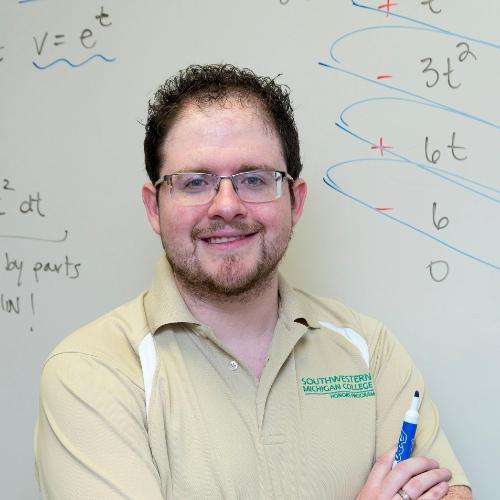
-
Education
Master of Arts in Mathematics, Western Michigan University
Bachelor of Science in Mathematics, Central Michigan University
Minors: Spanish, Leadership Studies
-
Courses Taught
College Algebra
Analytical Geometry and Calculus I and II
Statistics
-
Honors Program Involvement
Mr. Pelfrey is co-founder, co-director and faculty advisor for the Honors Program. He also teaches Honors sections of algebra and calculus I and II.
-
Full Bio
Mark Pelfrey received his bachelor of science with honors from Central Michigan University, where he majored in mathematics and minored in both Spanish and leadership studies. Mr. Pelfrey was the recipient of the prestigious Centralis scholarship at CMU, and it was largely his involvement in the Honors Program through that scholarship that would aid in the design of the Honors Program at SMC. During his tenure at CMU, Mr. Pelfrey was involved in various organizations, holding leadership roles in the CMU Residence Hall Assembly, Leadership Safari, Academic and Career Empowerment (ACE) summer camp, and the Epsilon Beta chapter of Alpha Phi Omega. Mr. Pelfrey was also a supplemental instruction leader for introductory algebra and business calculus courses.
As part of his Honors Program requirements, Mr. Pelfrey conducted original research with Dr. Lisa DeMeyer in the field of abstract algebra. This work led to a paper entitled “Properties of Zero Divisor Graphs Associated to Commutative Semigroups” published in “The Pentagon,” an undergraduate mathematics journal. Mr. Pelfrey presented about this research in multiple venues, including the REU/LURE seminar and the SCREE conference at CMU, at the Posters at the Capitol event in Lansing, and at the Michigan Undergraduate Mathematics Conference.
Mr. Pelfrey attended Western Michigan University where he earned his Master of Arts in Mathematics. During his tenure with WMU, he worked with faculty in the mathematics department to coordinate a tutor lab operation on campus and also participated in a research project with Dr. Frank Severance and Dr. Melinda Koelling to attempt to model and study the brain systems involved in Parkinson’s disease. Mr. Pelfrey was also a part-time faculty member at Lake Michigan College while attending WMU, teaching various mathematics courses and serving as an adjunct faculty member in departmental conversations about math pathways.
Professor Pelfrey has been a faculty member with Southwestern Michigan College since 2012, first as a part-time professor and then as a full-time professor beginning Fall 2013. During his tenure with SMC, Mr. Pelfrey has been involved in a number of initiatives and projects. Highlights include curriculum redesign of STEM and non-STEM pathways for mathematics courses, development of SMC’s Math Boot Camp program, development of the Math 102 course, presentations at various conferences including at the American Mathematical Association of Two Year Colleges annual meeting and serving as webmaster for the Michigan Mathematics Association of Two Year Colleges organization. Most recently, Mr. Pelfrey has worked closely with professor Gary Franchy to develop the Honors Program at SMC and currently teaches Honors students in College Algebra and both Calculus I and Calculus II.